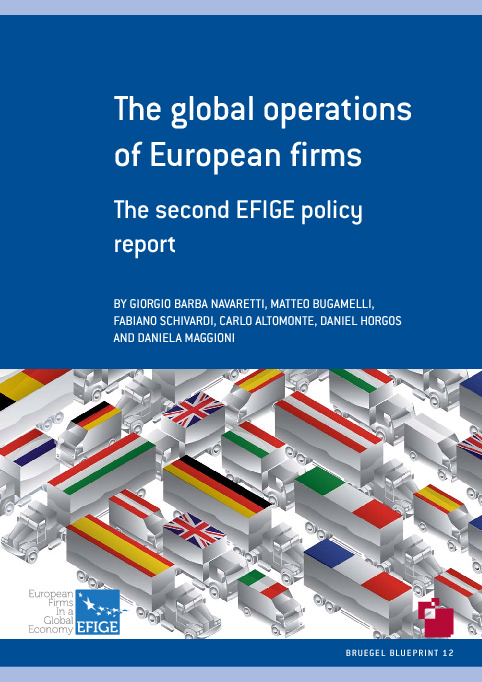Blueprint
The global operations of European firms – The second EFIGE policy report
This Bruegel blueprint analyses, within the framework of the EFIGE (European Firms in a Global Economy) project, the export and foreign investment performance of European firms. It is based on new cross-country data from 15,000 individual firms never available before. Written by Giorgio Barba Navaretti, Matteo Bugamelli, Gianmarco Ottaviano and Fabiano Schivardi, the report looks […]
This Bruegel blueprint analyses, within the framework of the EFIGE (European Firms in a Global Economy) project, the export and foreign investment performance of European firms. It is based on new cross-country data from 15,000 individual firms never available before.
Written by Giorgio Barba Navaretti, Matteo Bugamelli, Gianmarco Ottaviano and Fabiano Schivardi, the report looks at the specific elements that make some European companies more competitive than others in foreign markets, revealing that firm characteristics -mainly size- are the primary determinants of export performance, even more so than country characteristics. Therefore the authors suggest that firm growth and consolidation in all European countries would generate a considerable increase in the value of European exports and thus help lift European growth.
These findings will be crucial for policymakers, who, in order to boost the chance of European firms’ on foreign markets, should shift the policy discussion from the current focus on specific sectors and skill groups to structural reforms that allow firms across the board to grow and to develop more sophisticated forms of management.
Until now, evidence on European firms’ competitiveness has been based on partial, non-comparable national data. But for the first time this paper is based on detailed results from a new large-scale survey of 15,000 manufacturing companies in seven EU countries (Austria, France, Germany, Hungary, Italy, Spain and the United Kingdom). The survey examines firms’ exporting, importing, outsourcing and foreign investment activities. This survey data has then been combined with structural data about the individual firms taken from their balance-sheets such as governance, profits, number of employees.








